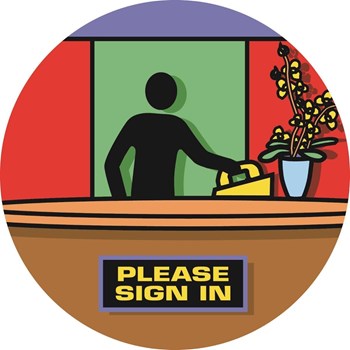
Everyone wants to feel secure and have peace of mind when they lock their doors each night, but in a multifamily condo or co-op in New York City, you can’t always control who enters your building. Management may have service people come in, other residents can allow guests, and even you yourself may hold the door for someone you don't personally know.
Set Standards
That’s why an important issue for any multifamily property concerns access. According to Colin Foster, president of Virtual Doorman, to maintain a safe and secure building, administrators must draft and enforce clear rules controlling access to the various parts of their property.
“The building should come up with standard rules and regulations that all residents and employees must follow,” he says. “They should determine what their security risks are and how to address them. They should also run any rule/regulation changes past their lawyer in order to ensure that the rules are able to be enforced and are legal and non-discriminatory.”
The written rules should speak to who can come in, at what time, under what circumstances, and how freely they can move about the building.
“Many people haven’t even addressed this policy and that’s wrong. They need to have a safeguard policy on the books,” says Mark Lerner, Ph.D, president of EPIC Security Corp, which provides security guards to co-ops and condos throughout the five boroughs. “It should be in the bylaws. All residents need to subscribe to the policy and it should define guests, all commercial delivery work and the hours allowed for people to enter the building.”
On the Job
An important thing that many people may not realize is that a doorman in New York City is not allowed to provide security.
“Any personnel placed in a security function—checking people coming in the building, controlling access, strolling the grounds—must be trained and licensed by the state of New York or the building can face criminal charges,” Lerner says. “So, if a handyman is watching the door for a few hours while the security guard needs to take off to go to a doctor, that’s against the law.”
That’s why many buildings have hired on-site security guards to minimize any access problems.
“The best way in my opinion to enforce the policy is to have a trained, uniformed security guard in your lobby,” Lerner says. “Also, keep a log of all visitors so management can be aware of who is coming and going in their building.”
Having someone on-site will also help with those people who may want to use the building as a shortcut to another street.
“Sometimes people try to use the driveways or paths but these are private and they can restrict access to the public,” Lerner says. “A security guard can prevent people from being where they aren’t supposed to be.”
One thing that drives Lerner crazy is when he sees residents take access lightly and let people into the building that they shouldn’t. Some with intercoms let people in without knowing who they are, some give their keys to people and others allow outside contractors without checking references or notifying building management.
It’s important, Lerner says, that residents understand that if they let strangers into their building, they are putting themselves and their neighbors at risk.
Liability Issues
When access is granted too liberally or things happen even when someone let’s someone in following the rules, according to state law, it’s usually not going to come back and haunt them.
Let’s say an outside contractor commits a crime in the building after being let in by a resident. Ronald A. Sher, an attorney with the Manhattan law firm of Himmelfarb & Sher LLP, says that in almost all cases, the resident wouldn’t be liable. The same holds true if a resident's guest mugs someone else in the building after being let in.
Generally, they are not responsible. They have neither notice or knowledge that was feasible that something would occur. It would be a difficult case to prove because of foreseeability,” he says. “It is the criminal who is liable. The alteration ability holds the contractor responsible.”
Even if a staff member does something outside of the law related to improper access, unless the building management could have seen this as a possibility, they would not be liable for any damage or theft committed.
Staff & Contractors
In regards to building staff, the board and/or managing agent should discuss all protocols and procedures for accessing units so there are no misunderstandings.
“I prefer that residents are present if they need to access a unit because I think it alleviates many issues,” Sher says. “Whenever someone needs to come inside—like for an emergency situation—all effort should be made to contact the resident. If not, a contractor or staff member should leave some documentation they were present, what work they performed and if they require further access.”
For any contractors that a resident or building hires, before allowing access make sure they are licensed and insured and everyone should sign in with the managing agent to show who they are and the scope of the work they plan on doing.
“A resident should leave a signed letter with the contractor’s name to confirm he is permitted access and display how much time they are expected to be there that day and for the entire project,” Sher says. “Written documentation is very important.”
One troubling access issue came up at a condo recently where the mother of a shareholder talked the doorman into allowing her in even though no one had alerted him that she was coming. The woman, who was on the outs with her son, trashed the unit. This is something that Lerner says never should have happened.
“Guest policies should be in the bylaws so that everyone knows who is allowed and there aren’t any issues,” Lerner says. “If there isn’t one, you should have a unit owner write something official about who is permitted to have access to their apartment. You should never let anyone in unless there is written authorization.”
Video Secure
Many buildings choose not to go with an in-person security guard or doorman and control their access via a closed circuit system.
Video Doorman for instance, is entirely interactive. All cameras leading to the elevator or package room have speakers and microphones, so they can “escort” a delivery person to and from the package room.
“If they start to wander, we tell them to leave, otherwise we will dispatch the police,” says Larry Dolin, president of American Security Systems, which provides the Video Doorman Service. “They always leave. If there are workmen, we require the managing agent or tenant to issue them a pre-arranged pass code.”
When a building has a “remote” or “electronic” doorman, the service acts as a supplement to the standard tenant intercom system.
Virtual Doorman also can grant access to guests and deliveries when tenants are not home. “If the tenant orders a pizza, the delivery person would use the standard intercom and the tenant would let them in directly since the tenant is at home and, in this example, has to be home to pay for the pizza,” Foster says. “If the tenant receives a package from UPS/Fed Ex/DHL while they are at work, the delivery person uses our system.”
Once they do, they are connected to the monitoring center, where its staff of trained professionals can view the cameras at the building and talk to the delivery person.
“With Virtual Doorman, the operators check the web portal and determine if the guest/visitor is expected and authorized to gain access,” Foster says. “If the operators determine that the delivery person or guest is authorized to have access to the building, they can remotely unlock the doors and grant them access by buzzing them in.”
In the event of a worker or guest, the operators make sure that the person gets into the building before they stop monitoring the cameras. In all cases, the resident receives an email from Virtual Doorman notifying them of the delivery or visitor.
Lerner isn’t a fan of the video system as he feels that video doesn’t always deter criminals, but a person will.
“Research shows that when a criminal sees a uniformed person, they go to another place to commit a crime,” he says. “Criminals don’t seem to mind if they are on video, they continue to commit the crimes. What video does is allow police or building management to figure out what happened.”
Both Foster and Dolin counter that because they are watching and speaking with all people who enter, and have the ability to notify the police quickly, their systems can be just as effective as a live body.
Losing Access
One problem that Lerner sees is that often people give extra keys to housekeepers, girlfriends and boyfriends and others who they may no longer want to allow in their apartments. Rather than notifying the management about this, they open a security risk because these people can still get inside.
As far as the access control aspect of either of the electronic doormen is concerned, if a building staff member, contractor, household staff member, etc. is no longer employed, they need only notify the company and it will quickly and easily remove him or her from the list of authorized visitors and remotely deactivate their key fob or key card so they can no longer gain access to the premises.
So, the next time you see someone behind you at your door without knowing if they belong, be safe and control your own access.
Keith Loria is a freelance writer and a frequent contributor to The Cooperator.




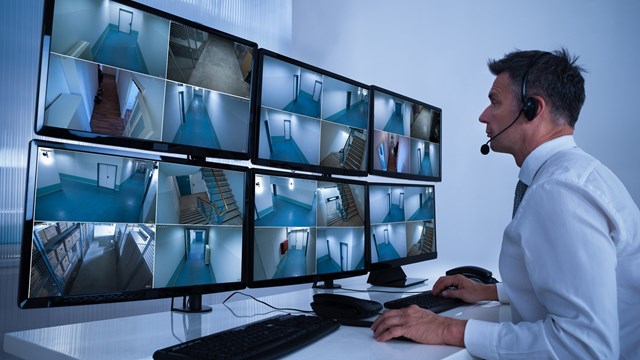
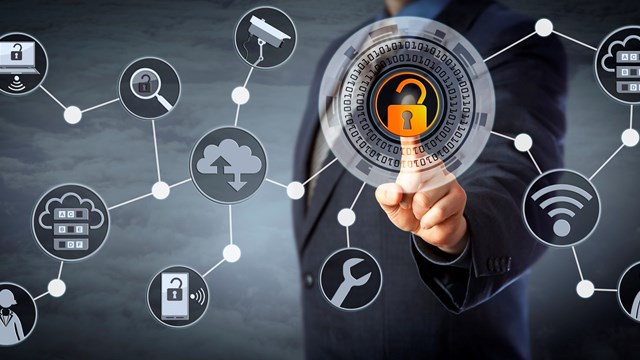
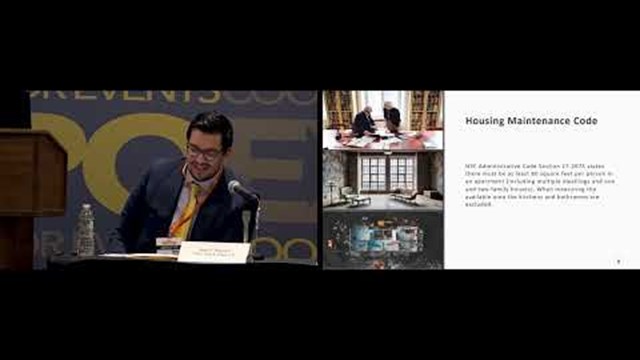
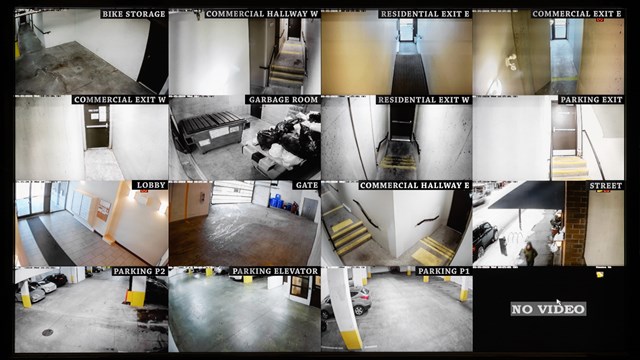
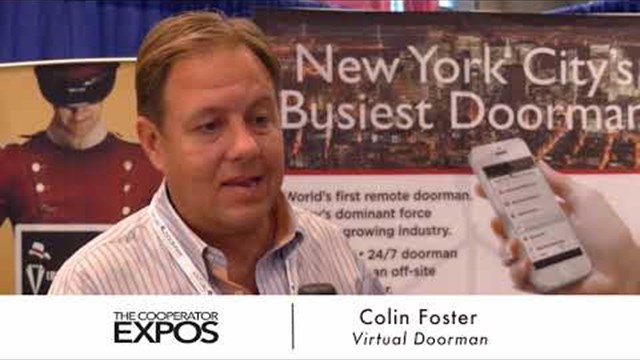
Comments
Leave a Comment